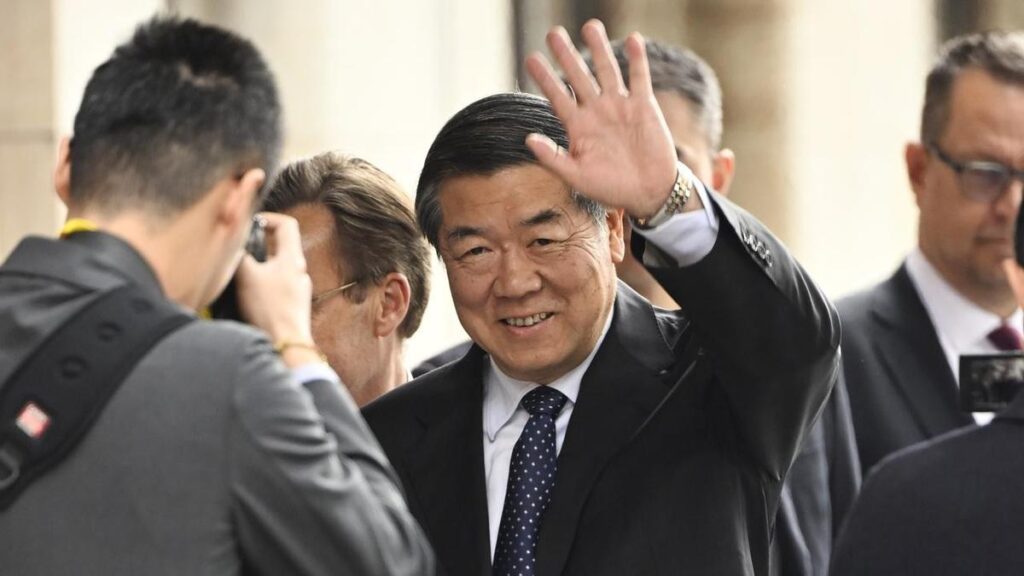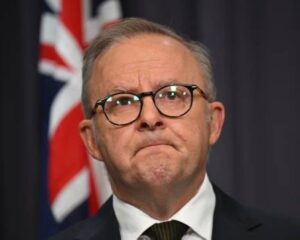
UPDATE: Top economic officials from the United States and China are engaged in critical negotiations today in Stockholm aimed at extending a tariff truce that is pivotal to resolving ongoing trade tensions between the world’s two largest economies. The talks commenced at the Swedish Prime Minister’s Office around 1:00 PM local time, with US Treasury Chief Scott Bessent spotted alongside China’s Vice Premier He Lifeng.
These discussions are urgent as China faces a looming August 12 deadline to finalize a durable agreement with the Trump administration. This comes on the heels of preliminary deals struck in May and June that temporarily alleviated escalating tariffs and restored the flow of rare earth minerals critical for technology manufacturing.
During a press conference in Scotland, President Donald Trump emphasized the importance of these negotiations, stating, “I’d love to see China open up their country. So we’re dealing with China right now as we speak.” Without a successful agreement, market analysts warn of potential chaos in global supply chains, with tariffs potentially reverting to triple-digit levels, akin to a trade embargo.
Attending the Stockholm talks, US Trade Representative Jamieson Greer characterized the meeting as a step towards monitoring and implementing previous agreements rather than expecting immediate breakthroughs. “What I expect is continued monitoring and checking in on the implementation of our agreement thus far,” Greer told CNBC, highlighting the need for critical minerals to flow seamlessly between the two nations.
The urgency of these discussions is further underscored by Trump’s recent trade deal with the European Union, which introduced a 15 percent tariff on most EU goods exported to the US. Analysts predict a high likelihood of extending the existing tariff and export control truce for another 90 days, which would facilitate a potential meeting between Trump and Chinese President Xi Jinping later this year, possibly in late October or early November.
Recent reports from the Financial Times indicate that the US has put a pause on tech export restrictions to China to prevent disrupting these crucial trade talks. Previous discussions held in Geneva and London focused on reducing retaliatory tariffs and resuming the flow of goods halted due to the trade war, specifically rare earth minerals and Nvidia’s H20 AI chips.
So far, the talks have not expanded to address broader economic concerns, such as US accusations that China’s state-driven economic model is flooding global markets with low-cost goods, or Chinese grievances regarding US export controls aimed at curtailing its technological growth.
The outcome of today’s negotiations in Stockholm could have far-reaching implications for global markets, trade dynamics, and the economies of both nations. As the situation develops, all eyes are on the officials in Stockholm to see if a path toward a more stable trade relationship can be forged.






